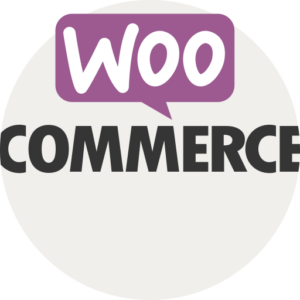The e-commerce landscape continues to evolve at lightning speed, driven by technological advancements and changing consumer expectations. Open Source E-Commerce Platforms are at the heart of this revolution, providing retailers with the flexibility to customize, scale, and innovate. Platforms like Magento, WooCommerce, OpenCart, GegoCart, and others are empowering businesses to navigate the complexities of multi-channel commerce.
In this blog, we’ll delve into the top 5 open source e-commerce platforms of 2024, their strengths, and the challenges they face as they pave the way toward 2025.
1. Magento (Adobe Commerce Open Source)

Why It Shines
Magento, with its robust feature set and scalability, remains a top choice for medium-to-large enterprises. Its modular architecture supports complex requirements, making it ideal for businesses aiming for multi-channel commerce.
Key Features
- Advanced SEO tools and marketing features.
- Multi-store capabilities.
- A rich ecosystem of extensions and integrations.
Challenges Ahead
- Performance Optimization: Magento’s resource-intensive nature often requires high-end infrastructure, making cost a barrier for smaller businesses.
- Simplifying Customization: Its steep learning curve can deter new developers, necessitating streamlined customization options.
2. WooCommerce

Why It Shines
Built as a WordPress plugin, WooCommerce is one of the most widely used e-commerce platforms globally. Its ease of use, flexibility, and integration with the WordPress ecosystem make it a favorite for small-to-medium-sized businesses.
Key Features
- Extensive plugin library for customization.
- Seamless content management through WordPress.
- Scalability with enterprise-level add-ons.
Challenges Ahead
- Scaling for Large Businesses: WooCommerce struggles with performance issues on high-traffic websites, requiring optimization efforts.
- Data Security: Its reliance on third-party plugins can lead to security vulnerabilities if not managed carefully.
3. OpenCart

Why It Shines
OpenCart is celebrated for its simplicity, affordability, and straightforward management interface. It is an excellent choice for businesses looking to set up a store quickly without compromising on essential features.
Key Features
- Multi-store support.
- Built-in payment gateways.
- A lightweight, fast-loading framework.
Challenges Ahead
- Limited Customization Options: Compared to Magento or WooCommerce, OpenCart offers fewer extensions, limiting advanced customization.
- Community Support: Maintaining an active and engaged community to drive innovation and support remains a challenge.
4. GegoCart

Why It Shines
A rising star in the e-commerce world, GegoCart focuses on flexibility, scalability, and modern features for multi-channel commerce. Its open-source nature and developer-first approach make it a promising contender for businesses of all sizes.
Key Features
- Modular architecture for easy customization.
- Built-in multi-channel selling capabilities.
- Support for Web3 integrations and blockchain-powered features.
Challenges Ahead
- Building an Ecosystem: Competing with well-established platforms requires rapid growth in plugins, themes, and developer adoption.
- Global Expansion: Ensuring localization features like multi-currency, multi-language support, and regional compliance are vital for global success.
5. PrestaShop

Why It Shines
PrestaShop is known for its user-friendly interface and extensive module marketplace. Its flexibility and lightweight design make it suitable for small-to-medium-sized businesses.
Key Features
- Multi-language and multi-currency support.
- A vibrant marketplace for add-ons.
- Community-driven development.
Challenges Ahead
- Enterprise Features: Expanding features to cater to large-scale businesses and high-traffic websites is crucial.
- Improving Core Performance: PrestaShop’s reliance on additional modules can lead to performance inefficiencies.
Challenges Toward 2025
- Seamless Multi-Channel Integration: As retail increasingly spans online, offline, and social media channels, e-commerce platforms must offer streamlined integrations across all touchpoints.
- Personalization and AI Integration: Leveraging AI for personalized shopping experiences, dynamic pricing, and customer insights will become a competitive necessity.
- Sustainability and Ethical Commerce: Platforms need to support sustainable practices like carbon footprint tracking and eco-friendly logistics integration.
- Web3 and Blockchain Adoption: Enabling blockchain-powered payment options and decentralized marketplaces will define the next phase of innovation.
- Enhanced Security: With rising cyber threats, open-source platforms must double down on security features like robust encryption and fraud detection.
Final Thoughts
The top open-source e-commerce platforms of 2024—Magento, WooCommerce, OpenCart, GegoCart, and PrestaShop—are reshaping the future of online retail. While each platform has its unique strengths, the road to 2025 demands addressing challenges like scaling, multi-channel commerce, and integrating emerging technologies.
Whether you’re a startup or an established retailer, these platforms offer a foundation to innovate and grow in a competitive market. The future of e-commerce is bright, and with the right tools, businesses can create experiences that are not only profitable but also meaningful for their customers.
Useful Links: Top 5 JavaScript Frameworks in 2024, Top 5 JavaScript Testing Frameworks in 2024, Top 5 CSS UI Kits in 2024, Top PHP Frameworks in 2024, Top 5 Open-Source PHP CMS Platforms in 2024,Top 5 Open Source Cybersecurity Tools in 2024,Best Open Source AI Frameworks in 2024

